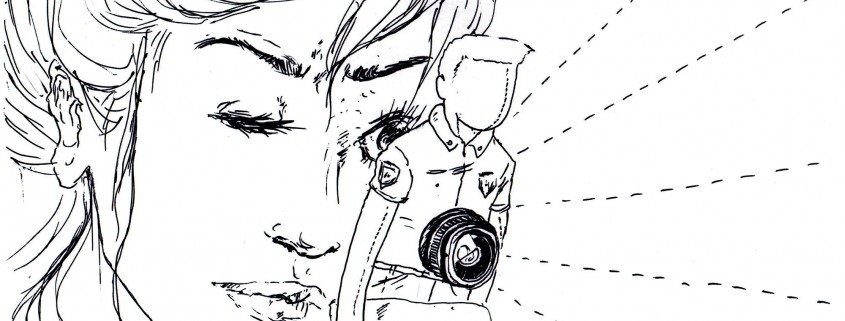To avoid tragedies, police forces need to apply body cameras
Earlier this month, a brutal cell phone video emerged in which a white police officer shot an unarmed black man. Michael Slager, the officer who has been charged with murder, fired his pistol eight times, striking the victim, Walter Scott, in the back. Scott collapsed and died from his wounds a short while after. Critics and the mayor of North Charleston, South Carolina where the incident occurred have pressed for the implementation of body cameras for all officers to avoid future events like this. Their ideology supports the notion of increased jurisprudence on the issue of police brutality.
Even President Barack Obama has jumped on the police camera bandwagon. In the wake of the Michael Brown and Eric Garner tragedies, Obama pledged $263 million to better equip police officers with body cameras and better training. One reason why many police forces aren’t equipped with body cameras is because of their expensive price tag. This funding will help officers with evidence collection in the event that a crime occurs and the footage needs to go to trial.
Evidence collection holds police officers responsible for their actions. In the United States, police officers rarely see jail time because of legislation protecting their duty to keep the peace. An officer can make a split-second decision to aim and fire to protect the community; consequently, it’s nearly impossible to prove malice in a court of law.
It’s true that Officer Daniel Pantaleo was not indicted for his execution of a fatal chokehold on Garner even though cell phone footage showed Garner struggling for air, shouting “I can’t breathe!” It could be argued that if cell phone evidence can’t prove that someone’s guilty, then a police body camera with much lower quality would definitely not do the job. There are, however, cases where no one is able to take a video of what happened. Then, what’s left are eyewitness accounts — if there are any -— and faulty suppositions. Body cameras must be mandated in order to present the truest form of what happened.
Indeed, the implementation of body cameras could eliminate false narratives. Walter Scott’s son Erik died when he was walking out of Costco and a police officer shot him to death. The officer was not indicted because local Costco personnel and area law enforcement obliterated any sign of security video. To avoid similar incidents, Scott wrote in an article for Politico, “The answer, it seems to me, is simple: If you’re entrusted with a badge and gun, then you must be held accountable by being required to wear bodycams and accept zero-tolerance protocols that ensure their proper use.” The mere presence of body cameras might have motivated the officers involved in Erik Scott’s death to be less impulsive about their conduct.
With a 91 percent approval rating from the public, body cameras are still considered experimental. They aren’t perfect, with privacy issues still to be worked out, but a San Diego pilot program of police body cameras reported a decreased brutality by 46.5 percent and civilian complaints by over 40 percent. The numbers illustrate the accountability body cameras equip police officers.
Police officers need to keep up with the technology age too. It’s time that their motto, “to protect and to serve,” is met with complete assurance, and that starts with an accurate capture of their conduct.
Danni Wang is a sophomore majoring in psychology. She is also the editorial director of the Daily Trojan. “Point/Counterpoint” runs Tuesdays.


Can’t argue against body cameras. In some cases they would prevent rash actions, and in others, would document what happened. One also needs to understand that the officer is experiencing adrenaline response, rage, and genuine fear of the perpetrator. Not sure if role-playing training and other psychological training would help, but I believe it would. To really understand this, though, one needs to have experienced the terror of being assaulted, or even fired at by a criminal. Those of us who have been police or in a combat zone understand how quickly things happen at such times.